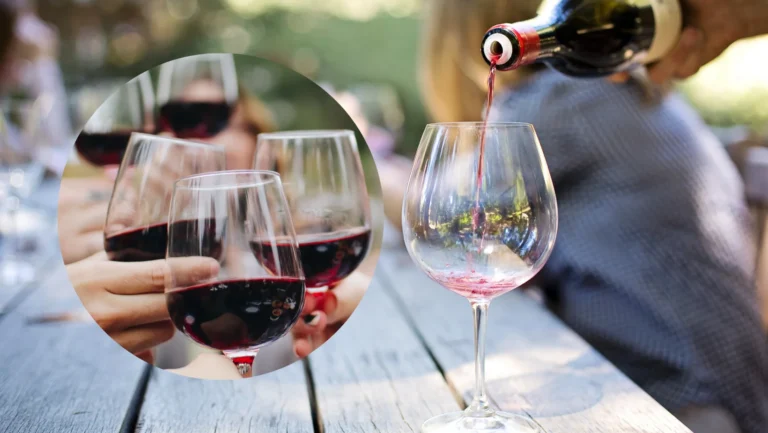Table of Contents
ToggleDoes Drinking Alcohol Affect Recovery From Other Drug Use?

Here the burning question is: Does drinking alcohol affect recovery from other drug use? There is also an ongoing debate about whether those trying to overcome addiction from drugs can safely drink or not. Many people feel that if they have never had an issue with alcohol, there is no reason for them not to drink.
In previous years, alcoholism and drug addiction were viewed as two separate fields, and it was commonly accepted for those trying to recover from chemical substances to drink alcohol. It soon became apparent that drinking alcohol yielded negative effects, and by the mid-1990’s complete abstinence from all substances started to become accepted policy for those trying to overcome any kind of addiction.
Negative Impacts of Drinking Alcohol While Recovery From Other Drugs:
Alcohol reduces inhibitions, making it easier to throw caution to the wind in terms of recovery. Additionally, it triggers feelings of reward in the brain, which may trigger cravings for one’s primary drug. Studies show that drinking substantially increases the chances of relapse. For example, drinking alcohol was shown to be related to cocaine use both during and after treatment for the drug use disorder. The use of alcohol after treatment for cocaine was associated with worse cocaine recovery outcomes 6 months later.
It suggests that those who had a previous drug use disorder may use alcohol (or a different drug) as a substitute, increasing their drinking to compensate for the absence of their primary drug. According to a study in November 2014, individuals who abstain completely from all substances have a significantly lower risk of developing a new SUD than those who attempt to continue using a “different drug of choice.”
This is a type of addiction replacement, and although research findings tend to differ around the validity of substitution, most professionals in the field suggest that those in recovery err on the side of caution when it comes to addiction substitution.
Studies have consistently shown that drinking while overcoming addiction from another drug use, can lead to worse outcomes on the primary drug. For example, a systematic review of 13 studies found that drinking was unlikely to serve as an effective substitute for the primary drug and could instead increase the risk of relapse. The review concluded that abstaining from alcohol is crucial for successful recovery from another drug use disorder.
Additionally, combining alcohol with other drugs can be extremely dangerous and even fatal, as it can lead to severe physical and behavioral complications. The interaction between alcohol and other drugs can amplify the negative effects of both substances, putting the individual’s health and well-being at risk. Therefore, it is generally recommended that individuals trying to recover from another drug use disorder avoid drinking to ensure a successful and safe recovery process. Maintaining abstinence from both the primary drug and alcohol can help individuals focus on their goals, develop healthy coping mechanisms, and reduce the risk of relapse.
According to Suzette Glasner-Edwards, author of The Addiction Recovery Skills Workbook (New Harbinger Publications, 2015), “People with the most success in staying sober tend to get involved in a range of pleasurable activities and do them frequently. These activities can replace the time and energy that they had been spending on addictive behaviours, enabling them to experience pleasure without the devastating consequences of alcohol or drug use.”
Some people may feel that alcohol is a lesser addiction, due to its legality and social prevalence. However, alcohol carries the same risk of addiction as drugs such as heroin and cocaine. Overcoming addiction from drugs and alcohol is not only about abstinence from substances. It is also about emotional sobriety and creating a life in which substances are no longer needed.
It is important to note that overcoming addiction is a journey; Recovery852 can guide you or a significant other on the recovery path. We have helped people in Hong Kong overcome their addictive behaviors. Contact Grant at Recovery852 for a confidential and private consultation and assessment.
- Different Types of Addiction
- Support Network In Recovery From Addiction
- Effective Treatment for Addictive Behaviours
- Cognitive Behavioural Therapy For Addiction
- Setting Realistic And Reachable Wellness Goals In Recovery
- How Addiction Affects Families
- Sober Curious: A Movement For Change
- The Five Rules Of Recovery
- What Is Acceptance and Commitment Therapy?
- Mental Health 102: Understanding Depression
- Unpacking Wine Mom Culture
- The Dangers of Addiction Replacement
- Nurtured By Nature: Nature In Addiction Recovery
- The 12 Steps For Atheists
- A Deeper Look Into Dual Diagnosis
- Financial Wellness in Addiction Recovery
- How Does Stress Affect Addiction?
- Mental Health 101: Understanding Anxiety Disorders
- Talking About Marijuana Use Disorder
- Yoga Practices in Addiction Recovery